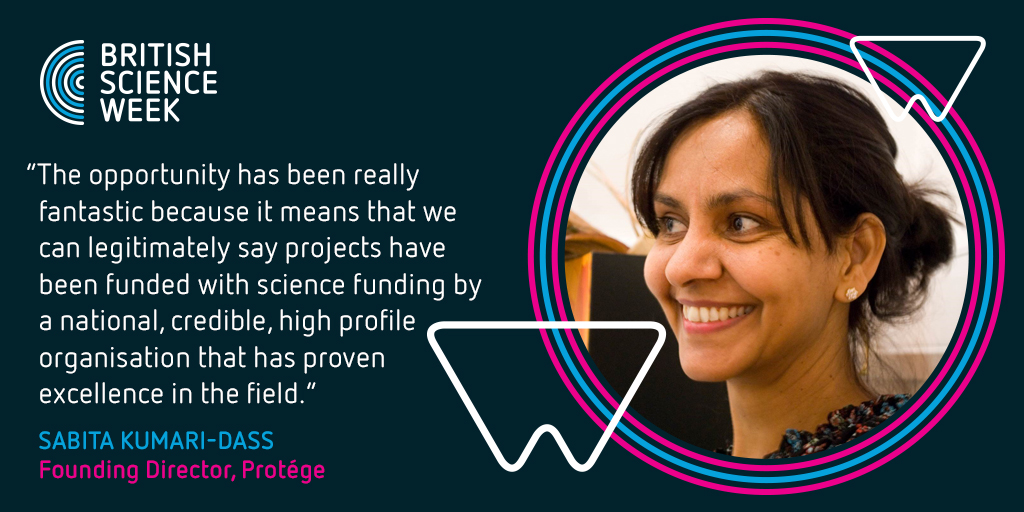Protége is an ‘aspirational and cross-genre’ charity working with divergent’ young people aged 12-24 with exceptional needs. Founding Director, Sabita set up the charity and directs a team of freelance artists who teach accredited skills to divergent young people.
Protége were recipients of a British Science Week (BSW) Community Grant in 2018 which the team used to run a series of activities about explorers and plant migration.
What events did they run?
Firstly, the team worked with young women, long-term hospitalised with illnesses around neglect, abuse and trauma. They worked on a project which explored what happens to species when they’re taken outside of their natural environment.
This was a way for participants to look at their own health and well-being and think: “It’s not that I’m an unhealthy person. It’s just certain environments that make me less well. I can be more well.”
Second, they worked with children with severe ADHD asking them to put themselves in the role of an explorer and gather knowledge about how to succeed in different professions. All participants got an Arts Award, their first and only qualification for some
Sabita said: “Because of the science element, it felt important to the students. They really got into the idea of this is a hard project, we’ve got to support each other, and you know explorers couldn’t have done what they did if their teams had criticised them and called them names or laughed at them.”
How did British Science Week funding help?
“The opportunity has been really fantastic because it means that we can legitimately say [that] projects have been funded with science funding by a national, very credible, high profile organisation that really has proven excellence in the field.”
The £500 grant was ‘instrumental’ and is a motivator to do more science. Sabita said: “It’s been a way of getting a little bit more money for stuff we really want to do” particularly on mental health.
According to Sabita, the grant enabled them to think “we could be credible [and] confident about our ability to do a science project.”
